Informed by the environment in which she grew up, the region of Asturias in Spain, Azabache flows with a mystical and dark ethereal aura, however this essence transcends regulations when paired with avant post-rock sounds. Reprinted with permission (Vanguardia Peruana).
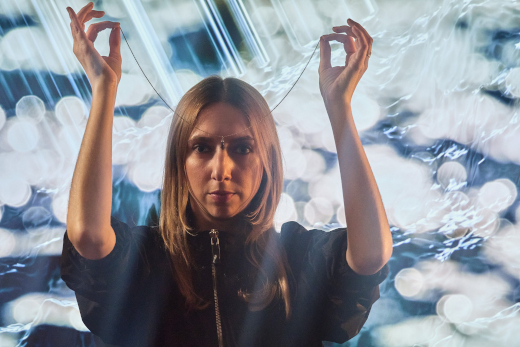
Azabache flows with a mystical and dark ethereal aura
Ana Quiroga is a London-based composer, producer and sound designer working in arts, film and audiovisual media. She was part of Vintage and Las Casicasiotone projects focused on indie-rock and avant-garde music respectively. Ana has rotated her talent for constructing sonic edifices and psychedelic soundscapes with labels such as Editions Mego, Houndstooth, Other People, and Modern Obscure Music, among others. She just published, on September 8, Azabache (Houndstooth, 2023), 10 pieces and 36 minutes. As her solo debut, the album surprises and corroborates Quiroga’s years of experience in the fields of experimentation and sound art.
Informed by the environment in which she grew up, the region of Asturias in Spain, Azabache flows with a mystical and dark ethereal aura, however this essence transcends regulations when paired with avant post-rock sounds. It is impossible not to reminiscence with masters like Seefeel, Bowery Electric, AMP or Transient Waves in every fiber of this volume. Exquisite and notable work like few others.
Wilder Gonzales Agreda :: Thank you for accepting the interview. How did your love for alternative or different music and experimental electro-sonic music begin?
Ana Quiroga :: A pleasure! My love for music comes from a very young age. In my house, both my father and my mother have been very fond of music and we have always connected a lot through it. Also other family members. My uncle was an incredible guitarist and my grandfather was a pianist and provided silent movie soundtracks. My father had a jazz radio show and he was always showing me music. He also had many instruments that he played as a hobby, so I started practicing with the guitar, and later with the electric bass. I have always been self-taught and took it as a hobby. Until a few years later, I discovered that you could make music with a computer and a friend gave me a synth, and that’s how LCC (Las CasiCasiotone) emerged. And suddenly, it was no longer a hobby, but an unstoppable passion!
Tell us about your background—besides LCC (Las CasiCasiotone), what other ensembles and projects have you integrated?
When I started playing bass, I started an alternative rock group with some friends, but we were very undisciplined and we almost never rehearsed, so we quit. But I was very excited to play in a group, so I put up posters at the University saying “bassist looking for a band” and that’s how I joined Vintage, an indie-rock group with which I played more than a few times a year and we gave many concerts. In the end I had to leave because it was very difficult for me to combine it with studies. A few years later, we founded LCC.
What other women and experimental dissidents on the Spanish scene would you recommend?
The Spanish scene is in full evolution! I recommend that you listen to Marina Herlop, RRUCCULLA, Tarta Relena, Ikram Bouloum and Chruda.
What is your current setup or equipment? What software do you use to produce?
For producing, I use Ableton and Logic, almost interchangeably. Sometimes I start a track in Ableton because I’ve been using it for many years and I’m faster, but then I move on to Logic because I like certain plugins better. I always mix in Logic.
For live performance I use Ableton Live, and I carry several MIDI controllers, including percussion, as well as a microphone. I would like to bring more instruments, since in the studio I use synths, guitars, bass, etc. But for a matter of practicality, I have set up the live show completely in Ableton.
Your new album is superlative and has a rich psychedelic quality in tune with Seefeel, Bowery Electric or Scorn (ref. Gyral.) How do you undertake the compositional process, how long has it taken this album to be born, what are you trying to express?
I wanted to make a confessional album, talking about my roots and my emotions. And I also wanted to explore topics like magic, which I’ve been doing a lot of research into. Azabache is the combination of all of this. Jet is a magical stone, very important in Asturian culture and connected to my roots. The creative process has been a little over a year, although I recorded the album in practically a month, when all the pieces were ready to be connected. I am very unorthodox when it comes to composing. I like to work on a concept but in a very spiritual and emotional way, letting go and observing where it goes.
“I like to work on a concept but in a very spiritual and emotional way, letting go and observing where it goes.” ~ Ana Quiroga
We read on some blog that you also work as a teacher. What subjects and at what institution do you teach? How do you combine sound art and music with your role as a teacher, if at all?
I studied teaching, and I used to give support classes when I lived in Asturias. Over the years I have focused my career only on sound. I still maintain my passion for teaching but I only practice through masterclasses and electronic music workshops. Right now I am focused on the new album and I combine it with working at a post-production company, Company 3, where I coordinate the sound department.
What albums broke your brain/soul in a sublime way?
Without a doubt the first was Nevermind by Nirvana, followed by In Utero. Nirvana opened a sonic portal for me. And a few years later, Ride of Me by PJ Harvey and The Downward Spiral by Nine Inch Nails. PJ being one of my favorite artists. I just saw her live a couple of weeks ago presenting her new album here in London. She is simply magical. With NIN, especially all of her albums released in the 90s, I feel a connection that I don’t know how to explain, they stir and move me like no one else. Curiously, although I make electronic music, most of my musical influences come from rock.
Björk or Laurie Anderson?
Oh, impossible to choose! They are both incredible artists, unique and pioneers! Musically I connect more with Björk, but I admire them equally.
How do you think the future of music will be in the near future, both on a creative level and in its corporate industrial aspect?
Well, I see a quite complex future, everything revolves around capital and I am not very clear about the future of culture in general, which should be heritage and not industry. I think we are going to live in complex times and we will have to fight for a more fair world. Fair, in general.
Future plans and final words.
Spin the record as much as possible and continue creating new projects. I have many ideas that I want to explore!
Azabache is available on Houndstooth. [Bandcamp]






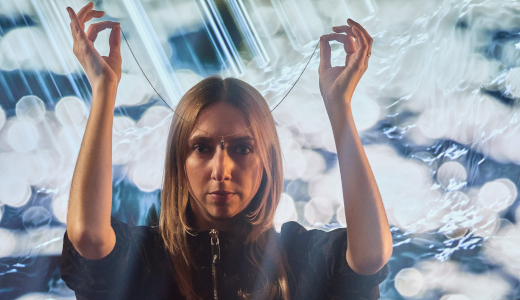




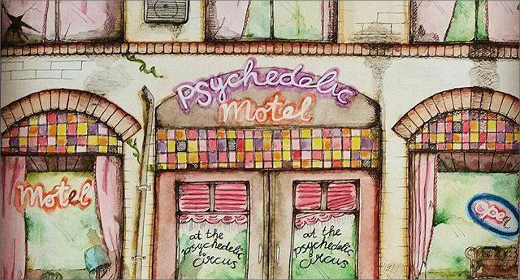
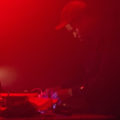
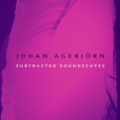
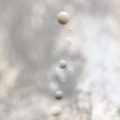
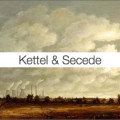
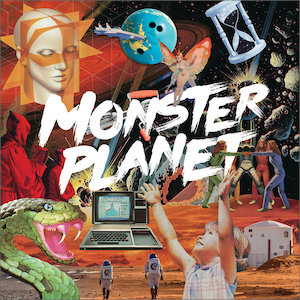







![Romanowitch :: A critical season substitute (glitch.cool) — [concise]](https://igloomag.com/wp/wp-content/uploads/2025/03/romanowitch-a-critical-season-substitute_tape_feat-75x75.jpg)

